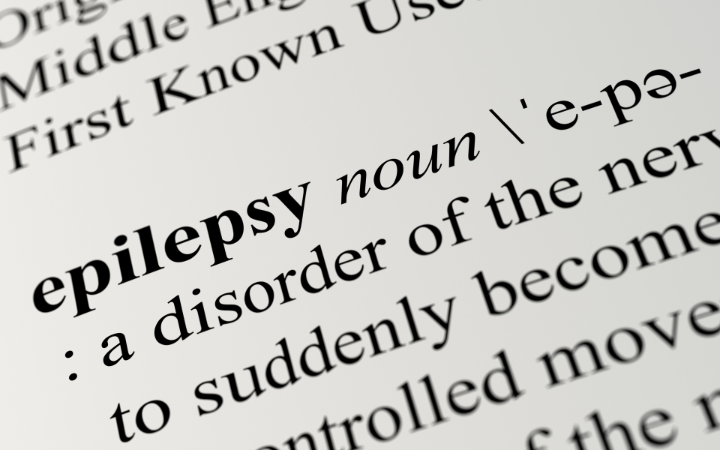
Adorable and beloved, dachshunds have become a staple in many households. Unfortunately, they are prone to a mysterious condition known as Dachshund epilepsy, which can result in seizures and other associated symptoms.
In this article, we delve into the perplexing world of dachshund epilepsy, exploring its symptoms and treatments in order to assist pet owners in managing this condition.
The Nature of Dachshund Epilepsy
An Enigma Wrapped in Seizures
Dachshund epilepsy is a neurological disorder that unleashes seizures in dogs. These seizures can range from mild to severe and may last from mere seconds to several minutes. Despite extensive research, the cause of dachshund epilepsy remains elusive, but it is believed to be either hereditary or caused by brain damage.
Signs and Symptoms of Dachshund Epilepsy
Physical Manifestations of the Condition
The symptoms of dachshund epilepsy can be diverse, but some common indicators include:
- Loss of consciousness
- Muscle twitching or shaking
- Paddling of legs
- Excessive drooling
- Unusual behavior such as hiding or biting
- Loss of bladder control
If you suspect that your dachshund is experiencing any of these symptoms, it is imperative to seek veterinary assistance immediately.
The Puzzling Causes of Dachshund Epilepsy
Potential Explanations for the Condition
The reasons behind dachshund epilepsy remain shrouded in mystery, but several theories exist. Some dachshunds may have a genetic predisposition to the condition, passed down from their parents. Others may develop epilepsy as a result of brain injury, such as head injury, stroke, or a brain tumor.
In some cases, the underlying cause may be a neurological disorder, such as brain infection, inflammation, or metabolic disorders. Unfortunately, in some instances, the cause of dachshund epilepsy may never be determined. Regardless of the cause, it is crucial to seek an accurate diagnosis and effective treatment plan to manage the seizures and maintain your dachshund’s happiness and health.

Diagnosing Dachshund Epilepsy
The Importance of an Accurate Diagnosis
Diagnosing dachshund epilepsy can be a complicated task, as its symptoms can mimic those of other conditions. Your veterinarian may conduct a physical examination, gather a medical history, and perform tests, such as blood tests, to determine the cause of the seizures. In some cases, an EEG may be required to provide a definitive diagnosis.
Medical Treatments for Dachshund Epilepsy
Managing the Condition with Medications
The treatment of dachshund epilepsy typically involves the use of anti-seizure medication. These medications are usually administered orally and work by reducing the frequency and severity of seizures. In some instances, additional treatments, such as surgery or dietary changes, may be necessary.
It is crucial to work closely with your veterinarian to determine the best treatment plan for your dachshund. Regular check-ups and monitoring of the dog’s seizures are also essential to ensure the efficacy of the treatment.
Alternative Therapies for Dachshunds with Epilepsy
Complementing Traditional Treatments
In addition to traditional medical treatments for dachshunds with epilepsy, there are various alternative therapies that may assist in managing seizures. Some of these alternative treatments include:
- Diet: Some pet owners have reported that changing their dachshund’s diet to include more healthy fats and avoiding processed foods has reduced the frequency of seizures.
- Supplements: Certain supplements, such as omega-3 fatty acids, vitamins, and minerals, may help support brain health and reduce the risk of seizures.
- Aromatherapy: Aromatherapy, especially the use of essential oils, has been shown to have a calming effect on dogs and may help reduce stress and anxiety, which can trigger seizures in some dachshunds.
- Acupuncture: Acupuncture is a traditional Chinese therapy that involves the insertion of fine needles into specific points on the body. Some owners have reported that acupuncture has helped reduce the frequency and severity of their dachshund’s seizures.

Dealing with Dachshund Epilepsy
Managing a Dachshund with Epilepsy: Challenges and Solutions
Caring for a dachshund with epilepsy can be a daunting task, but with the right support, it is possible to help them live a happy and healthy life. One of the biggest challenges is dealing with the unpredictable nature of seizures. By creating a safe and secure environment, reducing stress and anxiety, and working closely with a veterinarian, pet owners can help manage the condition and improve their dog’s quality of life.
Alternative therapies, such as dietary changes, supplements, aromatherapy, acupuncture, and herbal remedies, can also help manage seizures and support brain health. However, it is important to note that these therapies should always be used in conjunction with traditional medical treatments and should not be used as a substitute for proper medical care.
Staying Positive with Dachshund Epilepsy
Despite the challenges, it is possible to have a positive outlook when dealing with dachshund epilepsy. By understanding the symptoms, causes, and treatments, pet owners can be better equipped to manage the condition and provide their dachshund with the best possible care. With proper medical treatment, alternative therapies, and a supportive environment, dachshunds with epilepsy can lead happy and fulfilling lives.
Seizure Support for Dachshunds and Their Owners
Living with a dachshund that has epilepsy can be a journey, but it is one that can be made easier with the right support. There are many resources available to help dachshund owners, including support groups, online forums, and websites dedicated to dachshund epilepsy. These resources can provide valuable information, advice, and emotional support to help pet owners better understand and manage the condition.
Final Thoughts on Dachshund Epilepsy
In conclusion, dachshund epilepsy is a condition that requires a comprehensive approach to diagnosis and treatment. By understanding the symptoms, causes, and treatments, pet owners can be better equipped to provide their dachshund with the best possible care. With proper medical treatment, alternative therapies, and a supportive environment, dachshunds with epilepsy can lead happy and fulfilling lives.
References for “Unraveling the Complexities of Dachshund Epilepsy: Symptoms and Treatment”:
- American Kennel Club. (2022). Dachshund Health. Retrieved from https://www.akc.org/dog-breeds/dachshund/health/
- American College of Veterinary Surgeons. (2022). Seizures in Dogs. Retrieved from https://www.acvs.org/small-animal/seizures-dogs
- PetMD. (2021). Epilepsy in Dogs. Retrieved from https://www.petmd.com/dog/conditions/neurological/c_dg_epilepsy_in_dogs
- Cummings Veterinary Medical Center at Tufts University. (2022). Seizures and Epilepsy in Dogs. Retrieved from https://vet.tufts.edu/seizures-and-epilepsy-in-dogs/
- Merck Veterinary Manual. (2021). Seizures in Dogs. Retrieved from https://www.merckvetmanual.com/dog-owners/neurologic-disorders-of-dogs/seizures-in-dogs
- WebMD. (2021). Epilepsy in Dogs. Retrieved from https://pets.webmd.com/dogs/epilepsy-in-dogs#1
- American Society for the Prevention of Cruelty to Animals. (2021). Seizures in Dogs. Retrieved from https://www.aspca.org/pet-care/dog-care/seizures-dogs
- Veterinary Partner. (2021). Seizures in Dogs. Retrieved from https://www.veterinarypartner.com/Content.plx?P=A&S=0&C=0&A=2358




2 thoughts on “Unraveling the Complexities of Dachshund Epilepsy: Symptoms and Treatment”